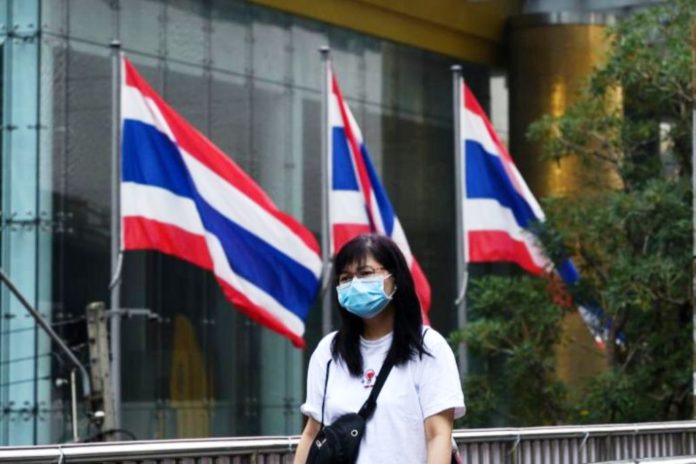Experten: Så påverkar pandemin livet efteråt
Vaccinsamordnaren: Alla som vill kan bli vaccinerade till midsommar

Ola Thuvesson, universitetslektor vid Institutionen för service management och tjänstevetenskap på Lunds universitet
Foto: Privat

Vårt sätt att resa kommer att förändras, tror Ola Thuvesson.
Foto: ADAM IHSE / TT / TT NYHETSBYRÅN

Även bostadsmarknaden kommer att se förändringar av pandemin.
Foto: FREDRIK SANDBERG/TT / TT NYHETSBYRÅN
Det senaste året har förändrat våra levnadsvanor i grunden.
Vi uppmanas att inte resa, inte umgås i stora sällskap och jobba hemifrån om det är möjligt för att minska smittspridningen.
Men hur kommer våra liv se ut efter corona?
Universitetslektorn Ola Thuvesson har utkristalliserat fyra trender.
Pandemin lamslog en stor del av 2020 och gav oss helt nya levnadsvillkor. Även om vaccineringen har påbörjats är pandemin långt ifrån över – men redan nu funderar många på hur på hur livet kommer att te sig post corona. Hur mycket återgår till att vara som det var innan och hur mycket har förändrats på ett mer varaktigt vis?
Ola Thuvesson, som är universitetslektor vid Institutionen för service management och tjänstevetenskap på Lunds universitet, ser fyra stycken trender.
Ett förändrat resande
Reseindustrin var i och med begreppet flygskam delvis under förändring redan när pandemin dök upp. Forskaren tror att vi kommer få se två falanger i synen på resor framöver.
– En falang kommer kompensationsresa så mycket det bara går men en majoritet kommer förmodligen se en ökad moralisk belastning i resandet. Pandemin har gett alla möjligheter att omvärdera oss själva och upptäcka saker på säkert promenadavstånd från hemmet, samtidigt som flygskammen har harvat på, säger han.
Enligt Ola Thuvesson kommer vi därför inte få se ett resande likt det var för flera år sedan.
– Coola människor kommer inte resa till London över helgen för att gå på teater eller shoppinghelg i New York. Jag tror det blir en mental ransonering där man åker en gång om året i stället för tre, stannar borta lite längre och reser lite långsammare. Man kommer bort från weekendresor och väljer i stället två veckor i Italien med tåg.
– När en sak sjunker i status händer något snabbt. Du kan få massan att springa åt vilket håll som helst genom status och tillhörighet.
Uppgradering av närmiljön
I takt med att vi spenderat mer tid hemma har även närmiljön blivit viktigare. Ola Thuvesson tror att närmiljön kommer påverkas i bemärkelsen att vi kräver bättre grejer där vi bor.
– Inställningen skit samma hur det ser ut, plötsligt fungerar inte det. Det behövs lite snyggare hus, bättre caféer och bagerier, godare fiskaffär och så vidare. Den trenden har visat sig rätt starkt.
– Småorterna och villaområdena behöver uppgradera lite mer.
Flyttlass från städer till landsbygd
Den tredje stora trenden enligt Ola Thuvesson är en befolkningsflykt från städer och förorter till landsbygden. I takt med att vi vant oss vid att arbeta hemifrån mer har vi upptäckt att det kanske inte är nödvändigt att vara på kontoret varje dag.
– Då blir det också attraktivt att bo lite längre bort. Det blir ett lyft för småorter och ren landsbyggd. Nu kan vi bo tio mil från städer i stället för fem, det fungerar att göra en jobbig resa in till kontoret två dagar i veckan i stället för fem.
– Städer som Malmö och Stockholm är redan överfyllda. Ingen vill betala 15 000 för en nybyggd etta med vask i vardagsrummet. I stället kan man lösa en korsvirkesgård i någon mindre ort. Vi kommer förändra den geografin, trycket på storstäderna kommer sjunka något.
Kontor blir bostäder
Till sist ser Ola Thuvesson även en förändrad kontorsmarknad post corona. Arbetsgivare försöker spara pengar och vill inte längre betala för stora kontor.
– Den trenden var på gång redan innan. Kontor kommer att byggas om till bostäder igen. Det är ett troligt mönster som vi sett på olika håll.
Malin Zillinger, universitetslektor vid Institutionen för service management och tjänstevetenskap, har också gjort en resespaning.
– Vi fick se våra resvanor förändras snabbt, inte för att vi ville utan för att vi fick nya regler att förhålla oss till, konstaterar hon.
Hon förklarar att det ofta blir det en gungeffekt tillbaka men ju längre tiden pågår i det nya tillståndet desto större sannolikhet att några eller många vänjer sig vid det nya i stället.
– Under ett år med pandemin har vi fått möjlighet att testa på andra saker och nya möjligheter. Samtidigt ska vi inte underskatta längtan tillbaka. Folk pratar och drömmer om att resa.
Enligt Malin har vårt fokus också riktats från urbana områden till områden som inte är så tätbefolkade. Tidigare åkte många till huvudstäder men där har man nu sett en otrolig tillbakagång berättar hon. Många har under 2020 valt naturen i stället.
– Stockholm har haft en beläggning på hotell på minus 85 procent vissa månader. Det är hemskt för alla hotellägare. Det är lite liknande siffror för Göteborg och delvis i Malmö.











